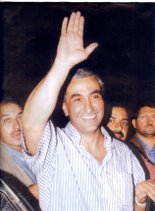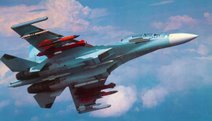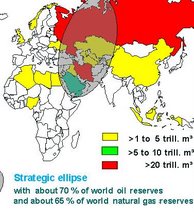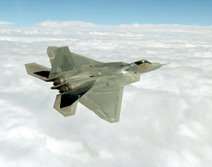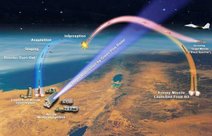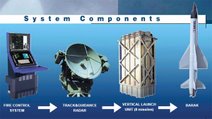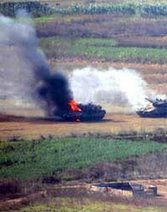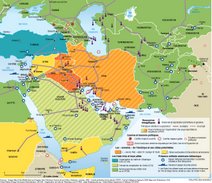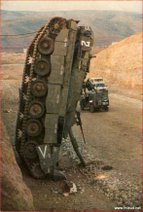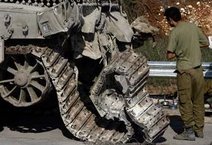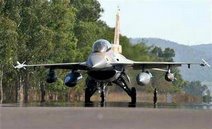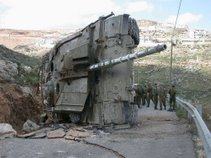
There congruence of strategic interests between Washington and Uzbekistan ....
Obama prepares to punish Pakistan...LOL
By M K Bhadrakumar
The Barack Obama administration is making an extraordinary bid with the United States Congress to get the seven-year old embargo on military aid to Uzbekistan lifted poste-haste this month.
The restrictions were first introduced in 1974 as a response to Uzbekistan's alleged human-rights abuses, such as summary imprisonment, torture and murder in prison. Following the massacre in Andizhan in 2005, the US further tightened the screw on the Uzbek regime.
Obama, the humanist par excellence, remains nonchalant to the fury of various human-rights groups, including Amnesty International, The Institute on Religion and Public Policy, Freedom House, Open Society Center, Human Rights Watch. Operation Enduring Freedom (which is how the US-led campaign in Afghanistan is labeled) is leading the United States president to strike Faustian deals.
As Salon quipped, more freedom for Afghans could result in less freedom for the Uzbeks.
Plainly put, Washington aims to bribe Tashkent into extending greater cooperation with the US-sponsored Northern Distribution Network (NDN), the overland supply lines from Europe to Afghanistan. Uzbekistan has become the hub through which as much as 80% of the North Atlantic Treaty Organization (NATO) supplies through the NDN reach Afghanistan.
These include rail routes reaching Uzbekistan from the Baltic ports via Russia, Belarus and Kazakhstan to Uzbekistan, an air route from Incirlik in Turkey, and a circuitous truck route from the NATO base of Germersheim in Germany via Austria, Hungary, Romania, Bulgaria, Turkey, Georgia, Azerbaijan, Kazakhstan, Kyrgyzstan and Tajikistan.
The NDN is much more circuitous and expensive than the routes through Pakistan - some estimates say anywhere up to two to three times more expensive - but the latest development to remove the restrictions on American arms for Uzbekistan shows that Obama is prepared to pay a heavy price simply for the sake of lessening the US's political dependence on Pakistan.
Obama is cultivating the Uzbek leadership even as he turned down a request from Pakistani Prime Minister Yousaf Raza Gilani for a meeting this week on the sidelines of the United Nations General Assembly session in New York.
Coming on the heels of the barely-disguised US threats of a hot-pursuit strategy toward the Pakistan-based Haqqani group that is a key component of the Taliban-led resistance in Afghanistan, Obama's move assumes significance.
The US may be left with no alternative but to have a showdown with Pakistan sometime in a near future and contingency arrangements need to be put in place if the US-Pakistan relationship were to unravel or erupt into a nasty confrontation.
Steve LeVine wrote in Foreign Policy wrote last week that the US had already pared down by half the volume of supplies being transhipped through Afghanistan by jacking up the share of the NDN volume correspondingly. Recent Chinese reports indicate that US and NATO are discussing with Beijing alternate transportation routes via Xinjiang.
So far, the anxiety was about keeping the supplies going for the US and NATO troops in Afghanistan. Now comes the requirements of a "reverse flow" as the US drawdown in Afghanistan picks up. The surge of troops and equipment for Afghanistan has already ended and the challenge ahead will be to get the troops and equipment safely and securely out of that country.
History shows that the pull-out by foreigners from the Hindu Kush always turned out to be infinitely more tricky than the conquest itself. Arguably, the most spectacular operation conducted by the Soviet army in Afghanistan was the manner in which the troops were evacuated in 1989 after 10 years in the country.
In short, the US now has to renegotiate with each of the countries providing transit for the NDN and obtain formal agreements to use the routes in reverse. But the kingpin is going to be Uzbekistan and to be sure, Tashkent knows it, too.
An old trope
The Afghan war has been a highly profitable enterprise for the Uzbek regime. The revenue generated out of providing various goods and services for the US and NATO troops and for Afghan reconstruction runs into hundreds of millions of dollars. The endgame whets the Uzbek elite's appetite for optimal war-profiteering.
Tashkent is making the plea that it is incurring the Taliban's displeasure because of its role in the NDN, which could pose serious security risks, and, therefore, some amount of non-lethal military assistance from Washington is useful at this point. But Tashkent is not pushing the envelope; it presents a modest demand for "non-lethal" items only.
Washington probably knows this is an old trope with the Uzbeks, whereas there have been, curiously enough, no Taliban attacks on any Uzbek interests or assets so far despite the expanding presence of the insurgents in the Amy Darya region.
It is conceivable that Tashkent retains at least some of the communication lines the Uzbek intelligence developed in the 1990s to the Taliban folks in Kabul and Kandahar. The Uzbek intelligence presence is fairly extensive within Afghanistan.
Last Wednesday, several well-known US-based human-rights groups jointly addressed a letter to the US Senate sub-committee on State, Foreign Operations and Related Programs of the Committee on Appropriations opposing the Obama's administration's move "at a time when Uzbek authorities continue to silence civil society activists, independent journalists, and all political opposition; severely curtail freedom of expression and religion; and organize forced child labor on a massive scale".
Interestingly, the petitioners, who included foot soldiers of US-supported "color" revolutions in the past, invoked the Arab Spring and argued that "recent dramatic developments elsewhere in Central Asia and across the Middle East make clear that Uzbekistan's status as a strategic partner to the United States should not be allowed to eclipse concerns about its appalling human-rights record".
It is highly unlikely, though, that the impassioned plea on human-rights grounds will move the Obama administration into remorse and retraction. The administration is actually pushing the Pentagon's case and Pentagon enjoys big clout with the United States Congress traditionally. In the middle of a hopeless war, on an issue where the safety of US soldiers could be put into jeopardy, congress is not going to be uncooperative.
On the other hand, Obama can also derive some diplomatic leverage by underscoring to Tashkent that it went the extra league to strengthen the US-Uzbekistan strategic partnership. The other authoritarian regimes in the Caspian-Central Asian region will be watching with envy Uzbek President Islam Karimov as he deftly shepherds Obama towards a pragmatic relationship.
They would also like to become "stakeholders" in the long-term American military presence in Afghanistan, which Washington is finalizing with Kabul.
However, beyond the travails of the Afghan war and the perils of the US-Pakistan partnership, Karimov is intrinsically acquiring a high pedestal in the US geostrategy as well. His recent policies have studiously distanced Tashkent from Moscow's orbit. Foremost among them is his stellar role in stymying Moscow's efforts to project the Collective Security Treaty Organization (CSTO) as the main provider of security in Central Asia.
Karimov failed to show up at the recent CSTO summit in Astana, Kazakhstan, after assuring Moscow he would. Tashkent stubbornly resists any interventionist role by the CSTO in the Central Asian region; consequently the alliance remains a "talking shop" between members Armenia, Belarus, Kazakhstan, Kyrgyzstan, Russia, Tajikistan and Uzbekistan.
On the other hand, so long as the CSTO remains ineffectual, Moscow's reach in Central Asia will incrementally weaken and, in turn, that would fortify Tashkent's ambitions as the region's hegemon.
In sum, there is a congruence of strategic interests between Washington and Tashkent insofar as the CSTO's weakening turns into NATO's advantage at a time when the Western alliance strives to expand influence in Central Asia.
By M K Bhadrakumar
The Barack Obama administration is making an extraordinary bid with the United States Congress to get the seven-year old embargo on military aid to Uzbekistan lifted poste-haste this month.
The restrictions were first introduced in 1974 as a response to Uzbekistan's alleged human-rights abuses, such as summary imprisonment, torture and murder in prison. Following the massacre in Andizhan in 2005, the US further tightened the screw on the Uzbek regime.
Obama, the humanist par excellence, remains nonchalant to the fury of various human-rights groups, including Amnesty International, The Institute on Religion and Public Policy, Freedom House, Open Society Center, Human Rights Watch. Operation Enduring Freedom (which is how the US-led campaign in Afghanistan is labeled) is leading the United States president to strike Faustian deals.
As Salon quipped, more freedom for Afghans could result in less freedom for the Uzbeks.
Plainly put, Washington aims to bribe Tashkent into extending greater cooperation with the US-sponsored Northern Distribution Network (NDN), the overland supply lines from Europe to Afghanistan. Uzbekistan has become the hub through which as much as 80% of the North Atlantic Treaty Organization (NATO) supplies through the NDN reach Afghanistan.
These include rail routes reaching Uzbekistan from the Baltic ports via Russia, Belarus and Kazakhstan to Uzbekistan, an air route from Incirlik in Turkey, and a circuitous truck route from the NATO base of Germersheim in Germany via Austria, Hungary, Romania, Bulgaria, Turkey, Georgia, Azerbaijan, Kazakhstan, Kyrgyzstan and Tajikistan.
The NDN is much more circuitous and expensive than the routes through Pakistan - some estimates say anywhere up to two to three times more expensive - but the latest development to remove the restrictions on American arms for Uzbekistan shows that Obama is prepared to pay a heavy price simply for the sake of lessening the US's political dependence on Pakistan.
Obama is cultivating the Uzbek leadership even as he turned down a request from Pakistani Prime Minister Yousaf Raza Gilani for a meeting this week on the sidelines of the United Nations General Assembly session in New York.
Coming on the heels of the barely-disguised US threats of a hot-pursuit strategy toward the Pakistan-based Haqqani group that is a key component of the Taliban-led resistance in Afghanistan, Obama's move assumes significance.
The US may be left with no alternative but to have a showdown with Pakistan sometime in a near future and contingency arrangements need to be put in place if the US-Pakistan relationship were to unravel or erupt into a nasty confrontation.
Steve LeVine wrote in Foreign Policy wrote last week that the US had already pared down by half the volume of supplies being transhipped through Afghanistan by jacking up the share of the NDN volume correspondingly. Recent Chinese reports indicate that US and NATO are discussing with Beijing alternate transportation routes via Xinjiang.
So far, the anxiety was about keeping the supplies going for the US and NATO troops in Afghanistan. Now comes the requirements of a "reverse flow" as the US drawdown in Afghanistan picks up. The surge of troops and equipment for Afghanistan has already ended and the challenge ahead will be to get the troops and equipment safely and securely out of that country.
History shows that the pull-out by foreigners from the Hindu Kush always turned out to be infinitely more tricky than the conquest itself. Arguably, the most spectacular operation conducted by the Soviet army in Afghanistan was the manner in which the troops were evacuated in 1989 after 10 years in the country.
In short, the US now has to renegotiate with each of the countries providing transit for the NDN and obtain formal agreements to use the routes in reverse. But the kingpin is going to be Uzbekistan and to be sure, Tashkent knows it, too.
An old trope
The Afghan war has been a highly profitable enterprise for the Uzbek regime. The revenue generated out of providing various goods and services for the US and NATO troops and for Afghan reconstruction runs into hundreds of millions of dollars. The endgame whets the Uzbek elite's appetite for optimal war-profiteering.
Tashkent is making the plea that it is incurring the Taliban's displeasure because of its role in the NDN, which could pose serious security risks, and, therefore, some amount of non-lethal military assistance from Washington is useful at this point. But Tashkent is not pushing the envelope; it presents a modest demand for "non-lethal" items only.
Washington probably knows this is an old trope with the Uzbeks, whereas there have been, curiously enough, no Taliban attacks on any Uzbek interests or assets so far despite the expanding presence of the insurgents in the Amy Darya region.
It is conceivable that Tashkent retains at least some of the communication lines the Uzbek intelligence developed in the 1990s to the Taliban folks in Kabul and Kandahar. The Uzbek intelligence presence is fairly extensive within Afghanistan.
Last Wednesday, several well-known US-based human-rights groups jointly addressed a letter to the US Senate sub-committee on State, Foreign Operations and Related Programs of the Committee on Appropriations opposing the Obama's administration's move "at a time when Uzbek authorities continue to silence civil society activists, independent journalists, and all political opposition; severely curtail freedom of expression and religion; and organize forced child labor on a massive scale".
Interestingly, the petitioners, who included foot soldiers of US-supported "color" revolutions in the past, invoked the Arab Spring and argued that "recent dramatic developments elsewhere in Central Asia and across the Middle East make clear that Uzbekistan's status as a strategic partner to the United States should not be allowed to eclipse concerns about its appalling human-rights record".
It is highly unlikely, though, that the impassioned plea on human-rights grounds will move the Obama administration into remorse and retraction. The administration is actually pushing the Pentagon's case and Pentagon enjoys big clout with the United States Congress traditionally. In the middle of a hopeless war, on an issue where the safety of US soldiers could be put into jeopardy, congress is not going to be uncooperative.
On the other hand, Obama can also derive some diplomatic leverage by underscoring to Tashkent that it went the extra league to strengthen the US-Uzbekistan strategic partnership. The other authoritarian regimes in the Caspian-Central Asian region will be watching with envy Uzbek President Islam Karimov as he deftly shepherds Obama towards a pragmatic relationship.
They would also like to become "stakeholders" in the long-term American military presence in Afghanistan, which Washington is finalizing with Kabul.
However, beyond the travails of the Afghan war and the perils of the US-Pakistan partnership, Karimov is intrinsically acquiring a high pedestal in the US geostrategy as well. His recent policies have studiously distanced Tashkent from Moscow's orbit. Foremost among them is his stellar role in stymying Moscow's efforts to project the Collective Security Treaty Organization (CSTO) as the main provider of security in Central Asia.
Karimov failed to show up at the recent CSTO summit in Astana, Kazakhstan, after assuring Moscow he would. Tashkent stubbornly resists any interventionist role by the CSTO in the Central Asian region; consequently the alliance remains a "talking shop" between members Armenia, Belarus, Kazakhstan, Kyrgyzstan, Russia, Tajikistan and Uzbekistan.
On the other hand, so long as the CSTO remains ineffectual, Moscow's reach in Central Asia will incrementally weaken and, in turn, that would fortify Tashkent's ambitions as the region's hegemon.
In sum, there is a congruence of strategic interests between Washington and Tashkent insofar as the CSTO's weakening turns into NATO's advantage at a time when the Western alliance strives to expand influence in Central Asia.







